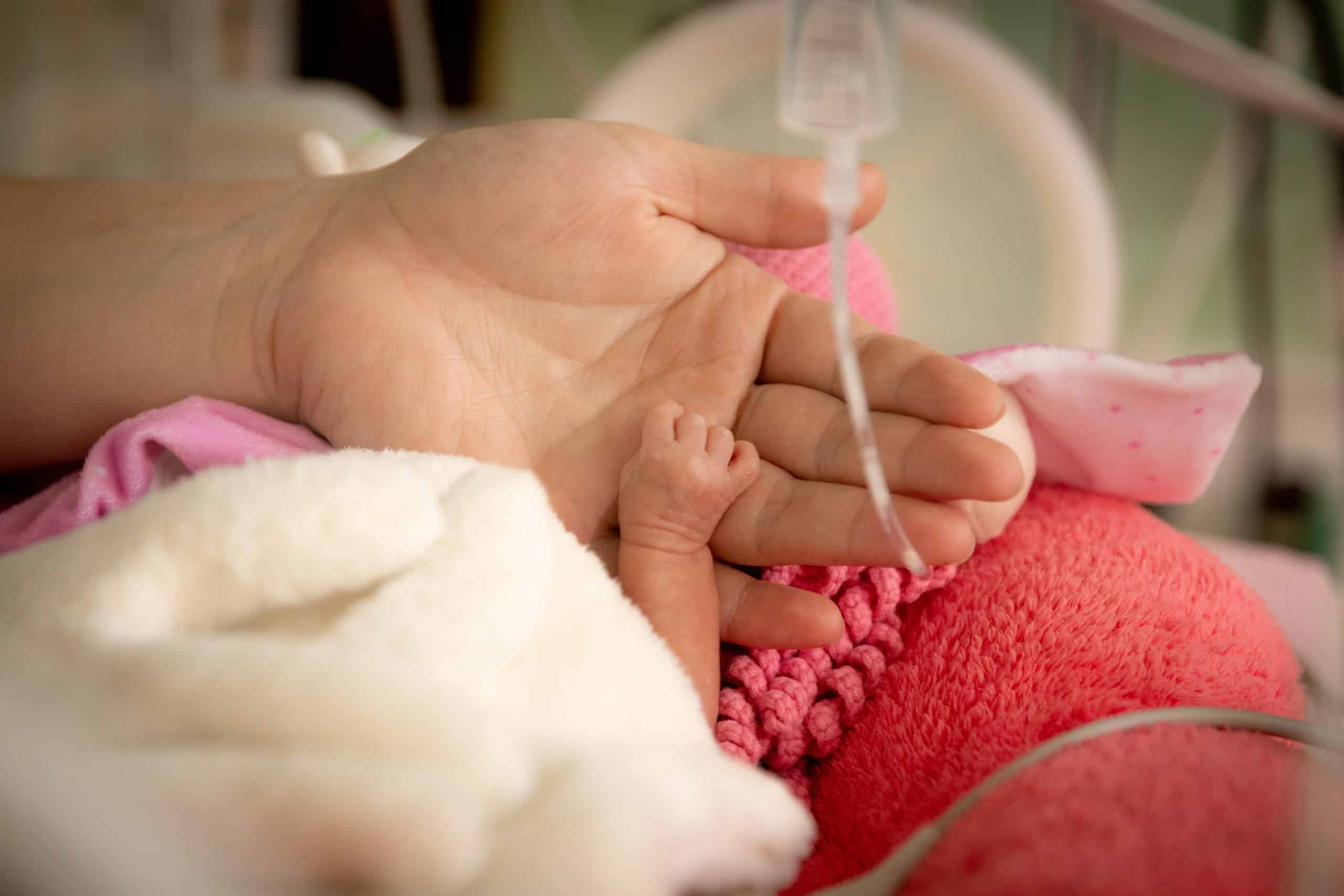
Bringing a newborn home is a joyous occasion, but for some parents, it brings more anxiety than excitement. This much is true for parents of premature babies.
The journey from the Neonatal Intensive Care Unit (NICU) to your home is an added challenge. And when you make it through, it can feel like you’re left to your own devices, leaving behind your sense of safety as you get discharged.
This is not the case at Children’s Medical Centers of Fresno. Our guidance and support extend beyond the four walls of our practice, ensuring you have the right resources (like this blog) to embark on this journey with confidence. As parents ourselves, your baby’s health is our mission as much as it is yours, cherishing each newborn as if they were our own.
We’ve seen countless parents whose preterm babies grew up healthy with personalized advice from our care team. Talk with one of our pediatric experts to get started.
Premature birth, defined as the delivery of a baby before 37 weeks of gestation, presents unique hurdles for both parents and healthcare professionals alike. While the exact cause of premature birth is often unclear, certain factors increase the risk, ranging from health conditions to lifestyle choices.
Babies who are born too early are extremely vulnerable and have a higher risk of developing complications. This is why they must stay in the NICU until they reach the expected pregnancy due date or as the pediatrician recommends. Rest assured that the NICU includes the expertise and resources needed to provide specialized care for premature infants.
Why does premature birth happen? There are several factors at play, but in most cases, some pregnancies are more prone to preterm labor due to health conditions. Here are some of the known reasons behind premature birth and the associated risk factors:
Understanding these complications empowers you to recognize potential issues early, make lifestyle changes, and prepare for appropriate premature newborn care. With insights into your baby’s medical needs, you can actively participate in their care, communicate effectively with healthcare providers, and advocate for your child’s well-being.

Entering the Neonatal Intensive Care Unit (NICU) is often an intimidating and distressing experience. The sight of your baby hooked up to tubes and monitors may evoke feelings of fear and helplessness. However, it’s crucial to recognize that the NICU is a place of hope and healing for premature and ill newborns. Dedicated healthcare professionals are present, providing the specialized care and support your baby needs. Here’s what you can expect during your baby’s time in the NICU:
The NICU is specially designed to meet the needs of premature and ill babies. It’s equipped with state-of-the-art technology and staffed by highly skilled medical professionals dedicated to providing your little one with the best possible care.
Premature infants often require specialized medical interventions to support their fragile health. In the NICU, your baby may receive respiratory support to help them breathe, nutritional supplementation to support their growth, and temperature regulation to keep them comfortable.
The NICU provides a range of medical interventions tailored to your baby’s needs, from ventilators to intravenous fluids. If your baby is jaundiced, they may undergo phototherapy to help break down excess bilirubin in their blood.
Feeling overwhelmed or anxious during your time in the NICU is natural, but you’re not alone. A medical team will assist you throughout your journey, providing guidance, comfort, and attentive support whenever you require it. You can also find comfort in connecting with other parents who have had similar experiences by joining parent groups or seeking counseling services.
Transitioning from the NICU to your home marks a significant milestone in your baby’s life, one that necessitates meticulous preparation and ongoing support. As you prepare to bring your baby home, it’s natural to feel excitement, anticipation, and perhaps a touch of apprehension. After all, caring for a premature baby outside the controlled environment of the NICU can intimidate any parent.
Seeking guidance from healthcare professionals helps you make the best decisions, understand your baby’s needs, thoroughly follow care plans, and promote the most nurturing environment for your baby. Here’s how to ensure a smooth transition:
Start by having a detailed discussion with the NICU team about your baby’s condition and care requirements. This will help you understand your baby’s unique needs upon returning home.
Work with the NICU team to create a comprehensive care plan tailored to your baby’s needs. This plan should include feeding schedules, medication timings, and special instructions for handling your baby’s condition.
Ensure you have all the necessary equipment for home care, including:
Create a calm and comfortable childcare space at home by:
Babies thrive on routine, so gradually adjust to your baby’s feeding and sleeping schedule. Pay attention to your baby’s cues and preferences, and adapt accordingly.
Strictly adhere to any medical advice or instructions provided by pediatricians. This includes administering medications on time and attending follow-up appointments as scheduled.
By following these steps and being prepared, you can ensure your premature baby thrives in your home after being discharged from the NICU. Do not hesitate to contact a newborn care specialist if you have any questions or concerns.
Read More: Parent’s Guide to Caring for a Premature Baby
Once you are home with your baby, it’s time for the hardest job of all, parenting your baby throughout their developmental milestones. While parenting is always challenging, knowing you are not alone is important. Following these tips can create supportive conditions for your premature baby to grow healthy and happy.
No practice understands the needs of premature babies better than Children’s Medical Centers of Fresno. Our specialized preemie care services ensure that your little one receives the best possible support and treatment from the moment they arrive to the day they go home (and beyond).
1. Through our comprehensive newborn baby care program, we provide:
Advanced Medical Expertise
Our team of experienced neonatologists and pediatric specialists has undergone extensive training to address the specific needs of premature infants, providing advanced medical care and interventions tailored to each baby’s requirements.
2. State-of-the-Art Facilities
Our facilities have the latest technology and resources, creating a safe and supportive space for premature infants to thrive and mature.
3. Compassionate Support
We understand that caring for a premature baby can be overwhelming. Our compassionate staff is available to provide guidance, support, and comfort throughout your journey, assisting you in confidently overcoming the obstacles of prematurity.
Caring for a premature baby demands patience, resilience, and knowledge. Stay vigilant about health concerns, monitor developmental milestones, and nurture a strong bond with your baby. Don’t forget to prioritize your well-being and seek support from resources and groups to navigate the emotional journey.
Your premature baby deserves top-notch care. Call our clinic today at (559) 455-1500 or click the “Book an Appointment” button for personalized guidance and support. Take advantage of our flexible after-hours appointments, running from 5 PM to 9 PM, Monday to Friday, and 9 AM to 3 PM on Saturdays. Trust our expert team to provide personalized care, either in-person or through telehealth services, ensuring your child receives the attention whenever they need it.